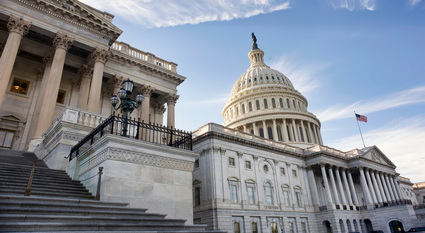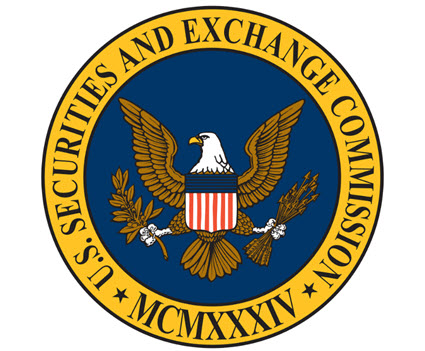
House Democrats passed their “sweeping” reconciliation package of tax, health care, education, and climate initiatives Friday morning, a step that advances a “centerpiece” of President Biden’s domestic agenda and represents “the most significant restructuring of the [social] safety net in decades.” (Politico, Nov. 19)
President Biden lauded the House’s action in a statement released by the White House this morning.
Partisan Bill Advances to the Senate
- All Democrats (except one) supported the $1.7 trillion Build Back Better Act (H.R. 5376), after months of negotiations between Progressives and Moderates debating the breadth of the measure and scaling back its original price tag north of $3.5 trillion. (Roundtable Weekly, Nov. 5) No House Republican voted for the bill.
- Today’s party-line vote took place after the Congressional Budget Office submitted a cost analysis that satisfied the requirements of a crucial group of Democratic Moderates needed to approve the legislative package. (CBO, Nov. 18 and text of the budget reconciliation bill.)
- The legislation now moves to the Senate where it will face additional scrutiny and could be reduced further in scope. If the Senate ultimately passes the BBB Act in a manner that changes the House-approved version, the bill would need to go back to the House for another vote before it reaches President Biden’s desk.
- Passage of the BBB Act follows on the heels of the enactment of the bipartisan bill to upgrade the nation’s transportation, water, grid, broadband, and other “physical” infrastructure. President Biden signed the $1.2 trillion Infrastructure Investment and Jobs Act into law on Monday. (Washington Post, Nov. 15). The Roundtable has strongly supported bipartisan investments to modernize the nation’s physical infrastructure. (Roundtable Weekly, Nov. 12).
Progress on CRE Tax Issues

- Relative to President Biden’s budget and the initial bill passed by the Ways and Means Committee, the House-passed BBB Act reflects continued progress on a number of tax issues important to real estate and prioritized by The Real Estate Roundtable. (Roundtable Weekly, Oct. 29) Critically, the current bill does not:
- Limit like-kind exchanges (sec. 1031),
- Increase the capital gains tax rate,
- Restrict the 20% pass-through business income deduction (sec. 199A),
- Tax unrealized gains at death or repeal of the step-up in basis of assets,
- Change the tax treatment of carried interest, and
- Restrict estate tax valuation discounts.
Roundtable Recommends Changes to Clean Energy Tax Provisions

- The BBB Act’s suite of clean energy tax credits and incentives comprise the legislation’s biggest measures to fight climate change. (Roundtable Weekly, Oct. 29)
- The Roundtable sent a letter to Congressional tax writers on Tuesday detailing five recommendations that aim to improve green energy tax provisions affecting real estate. The Roundtable’s letter urged changes to the BBB Act that would further the objectives to slash GHG emissions and make rapid progress toward a “net zero” economy by mid-century. (Roundtable letter, Nov. 16)
- The letter’s recommendations, listed below, would increase and scale deployment of low- and zero-carbon technology in the nation’s commercial and multifamily building infrastructure.
- Clarify that “thermal energy storage systems” are eligible for incentives under the Section 48 Investment Tax Credit.
- Further revise the 30C tax credit to support EV chargers in the non-public, but widely used, parking lots and garages that serve America’s residential and business tenants who seek to conveniently “charge-up” while at home or at work.
- Better align the BBB Act with the Biden Administration’s long-term climate strategy – by providing accelerated depreciation and other incentives for heat pumps and other components that “electrify” commercial and multifamily buildings.
- Induce more “retrofits” of aging buildings by allowing taxpayers to claim the 179D deduction in the year high-efficiency equipment is placed in service.
- The inclusion of Davis-Bacon and apprenticeship hiring will seriously undermine climate goals – because the high costs to comply with these labor standards will more than offset the BBB Act’s “bonus rates” for clean energy projects. Congress should not hinge the “bonus rates” on unrelated labor issues that fail to accelerate achievement of GHG reduction strategies.
Next: The Senate in December

- The Senate will take up the House BBB bill in December. Democrats will need the support of moderate Senators Joe Manchin (D-WV) and Kyrsten Sinema (D-AZ) to pass BBB legislation in the evenly divided upper chamber using budget reconciliation rules. However, Manchin recently stated he may withhold his support of the bill until next year due to rising inflation rates. (Newsweek, Nov. 16 and Axios, Nov. 10)
- Additionally, House lawmakers included six pages of technical changes in their BBB bill that could help it pass the scrutiny of the Senate Parliamentarian, who can remove certain House provisions if she determines they are incompatible with Senate rules.
Congress is scheduled to return from the Thanksgiving break on Dec. 3. Treasury Secretary Janet Yellen this week warned that if lawmakers do not take action to lift the legal debt ceiling by Dec. 15, they will risk a government default on its debt obligations. (Wall Street Journal, Nov. 16)
# # #



















